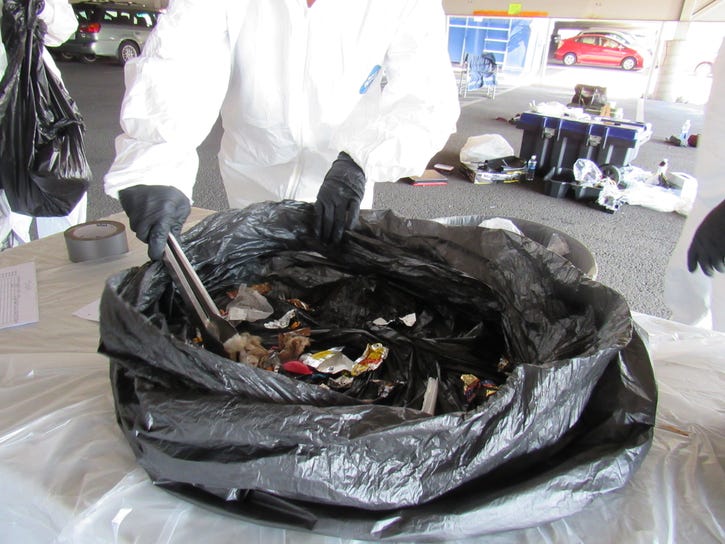Waste Audits Deliver Deeper Analysis for Multilocation Businesses
As regional regulations roll out, waste audits can help companies with multiple locations determine proper disposal of problematic materials to avoid violations.

Solid waste management is a fragmented niche, with services, waste streams and regulations varying from region to region. These dynamics can especially challenge multilocation businesses working to develop consistent systems to cut and prevent waste.
With more than 2,000 locations, Panda Express can vouch for how daunting the task can be, and it’s one reason the fast-food restaurant chain invests in waste audits. Procuring, negotiating and managing multiple waste agreements wasn’t easy. And with a large presence in states that are cracking down hard on food waste, it has become harder for the chain.
“Waste audits give you a literal deep dive into your trash. From there, you can collect data on what kinds of materials are making their way in the garbage, the volume, etc.,” says Roger Goldstein, executive director of facilities and energy for Panda Restaurant Group. “Knowing this allows you to make operational decisions, such as ways to work with product supply vendors on how product is packaged. You can provide training to your employees in areas where you need to increase diversion. And you can avoid risk and ensure compliance.”
With many locations in California, the company had to do a lot of homework fast as new regulations rolled out in steps, meaning they continued to change over time.
Initially, the organics mandate, AB 1826, only impacted larger waste producers like grocery stores; later, smaller generators had to step up and divert their food waste.
“In order for our business to understand how much organic waste we produce and when we would fall into the mandate limits, we needed to audit and measure our stream. Doing so has helped us prepare to comply with California’s regulations. This has also been of value as other states and municipalities where we operate are adding these types of mandates,” says Goldstein.
Further, he says, haulers, landlords and others can have their own sets of regulations that chains are forced to comply with, on their own timeframes. Waste audits have helped to follow their rules, too.

Waste audits can help inform implementation of plans around purchasing decisions to save money and cut landfilling. They may provide insight to determine proper disposal of potentially problematic materials and avoid violations. And they may help identify what can be diverted and turned into commodities to generate revenue, according to Paige Janson, chief commercial officer at ENGIE Insight, a global energy management and sustainability company.
An added advantage for multisite locations, she says, is “You go through streams, see what’s happening and get insight you would not otherwise have as far as what’s happening across different operations.”
Audits can help inform how much waste is going into the stream and the stage of that waste to determine its best use.
“Is it fit for human consumption? Can it be used some other way? And what use makes most sense whether for human consumption, animal feed or composting?,” says Janson.
Among the biggest surprises that came out of Panda Express’ audits was the volume of unopened sauce packages getting dumped. This not only opened eyes as to how excessive this one waste type was, but it also uncovered that huge quantities of packets had a corner torn, yet were not opened, then tossed.
“We passed this information on to our operations and product team, and enhancements in design and process [we’ve since made] now allow us to avoid this problem,” says Goldstein.
Lorenzo Macaluso, director of client services for nonprofit Center for EcoTechnology, has a different take on audits.
“My opinion is they have value in certain circumstances but are not necessarily essential for setting up effective recycling programs,” he says.
“We ask clients a few key questions such as about their top few material types and total weight or volume of trash. Based on this type of information, looking at a few locations and talking to their workers on the ground, we can get comfortable suggesting a plan with regard to needed training, equipment and container types and hauling service requirements,” adds Macaluso.
He believes audits may work where systems are set up that aren’t producing anticipated results. In this case, they may give more clarity to better understand the difference between what an entity thought was happening and what actually is happening.
But then, Macaluso said, some corporations have a culture where they just want that level of specificity available through a detailed analysis.
About the Author
You May Also Like




